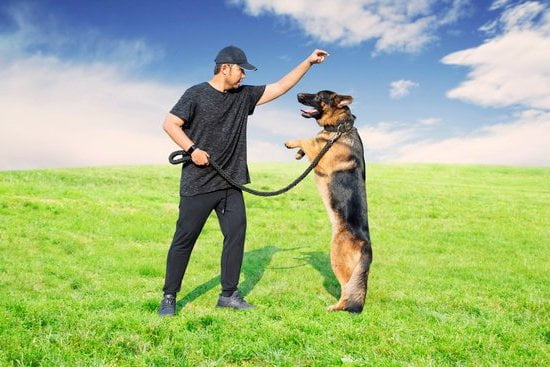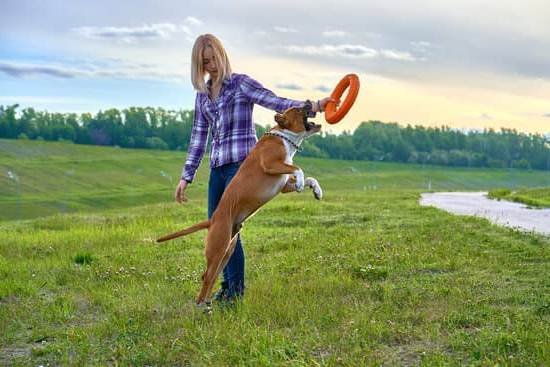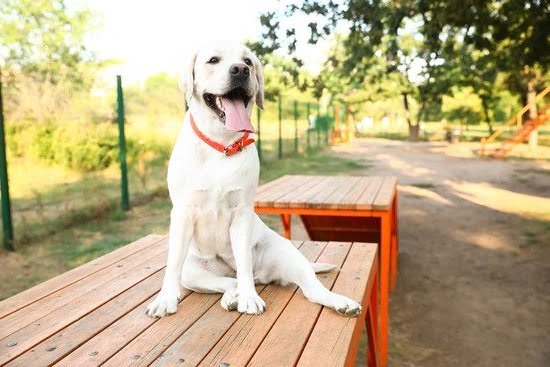Pet doors can be a convenient and valuable addition to any pet owner’s home, providing dogs with the freedom to go in and out as needed. In this article, we will explore the process of training your dog to use a pet door effectively. Understanding your dog’s behavior and instincts, choosing the right pet door, preparing for training, and troubleshooting common issues are all important components of successfully integrating a pet door into your home.
When it comes to how to train your dog to use a pet door, it’s essential to take into account their natural behaviors and instincts. By understanding these factors and selecting the appropriate type of pet door, you can set your dog up for success with their new access point. We’ll also discuss tips for encouraging positive behavior and maintaining long-term use of the pet door.
In the following sections, we’ll provide a step-by-step guide on the training process, offer solutions for common challenges that may arise during training, and present helpful tips for rewarding and nurturing the desired behavior in your dog. Whether you’re considering installing a pet door or have already done so, this comprehensive guide will equip you with the knowledge and strategies needed to effectively train your dog for using a pet door.
Understanding Your Dog’s Behavior and Instincts
Before you start training your dog to use a pet door, it’s important to understand their behavior and instincts. Dogs are naturally curious and are motivated by their senses of smell, hearing, and sight. They also have a strong instinct to protect their territory, including your home. Understanding these traits will help you in the training process.
Dogs also thrive on routine and repetition, so introducing a new element like a pet door can be initially confusing for them. It’s important to be patient and consistent as you train your dog to use the pet door. Additionally, some dogs may have anxiety or fear of new things, so it’s crucial to approach the training process in a gentle and supportive manner.
When choosing a location for the pet door, consider your dog’s behavior patterns and daily routines. For example, if your dog spends most of its time in the kitchen or living room, placing the pet door in that area would make it more familiar and accessible to them.
Now that we’ve discussed understanding your dog’s behavior and instincts when it comes to using a pet door, let’s move on to the next section on choosing the right pet door for your dog and preparing them for the training process.
| Behavior Traits | Training Approach |
|---|---|
| Curiosity | Be patient and provide positive reinforcement |
| Routine-oriented | Create a consistent training schedule |
Choosing the Right Pet Door for Your Dog
When choosing the right pet door for your dog, it is important to consider several factors to ensure a successful and stress-free experience for both you and your furry friend. The first thing to consider is the size of your dog.
You want to make sure that the pet door is large enough for your dog to comfortably pass through without any restrictions. Measure your dog’s height and width, and also take into account any potential growth if you have a puppy.
Another important factor to consider is the location of the pet door. If you have a fenced yard, you may want to install the pet door in a door leading directly outside. However, if this is not feasible, you can also install the pet door in a wall leading out to a secure area. It’s important to choose a location that provides easy access for your dog while also maintaining security and keeping intruders out.
| Consideration | Description |
|---|---|
| Size of Your Dog | Measure your dog’s height and width, taking into account potential growth. |
| Location of Pet Door | Select a location that provides easy access while maintaining security. |
| Insulation | Select a pet door that offers insulation from cold, heat, rain, and wind. |
Preparing Your Dog for the Pet Door Training
Before you start training your dog to use a pet door, there are a few preparatory steps that you need to take to ensure a smooth and successful training process. Here are some tips for preparing your dog for the pet door training:
1. Get your dog familiar with the pet door: Before you start the actual training, allow your dog to get used to the presence of the pet door. Encourage your furry friend to approach and sniff the pet door, so they become comfortable with it being a part of their environment.
2. Adjust the pet door size: It’s important to choose a pet door that is appropriate for the size of your dog. If the opening is too small, your dog may feel intimidated or hesitant to use it. Conversely, if it’s too large, it may not provide enough security. Make sure the size is just right for your dog’s comfort and safety.
3. Establish a routine: Dogs thrive on routine, so creating a consistent schedule and routine around using the pet door can help ease their transition into using it regularly. This could include feeding times, potty breaks, and play sessions that involve going in and out of the pet door.
By following these preparatory steps, you can set the stage for a successful training experience as you teach your furry companion how to use a pet door effectively.
Step-by-Step Guide on Training Your Dog to Use the Pet Door
Setting Up the Pet Door
First, you need to make sure that the pet door is installed at the right height for your dog. It should be low enough for them to comfortably walk through, but not so low that it becomes a tripping hazard. Ensure that the flap of the pet door is easy for your dog to push open.
Introducing Your Dog to the Pet Door
Start by propping open the flap of the pet door and encouraging your dog to approach it. Use treats or their favorite toy to entice them to go through the opening. Repeat this process several times until they become comfortable with going in and out of the pet door.
Training Your Dog to Push Through
Once your dog is comfortable with approaching the pet door, start closing the flap slightly so that they have to push against it to get through. Encourage them with positive reinforcement whenever they successfully push through the flap. Be patient and persistent during this training process, as some dogs may take longer than others to grasp this concept.
Now that you have familiarized your dog with the pet door and taught them how to use it, remember to keep practicing regularly so that they maintain their ability and confidence in using it. With consistent training and positive reinforcement, your furry friend will soon be able to use their pet door independently.
Troubleshooting Common Issues During Training
Training a dog to use a pet door may not always go smoothly, and it’s important to be prepared for common issues that may arise during the training process. Here are some troubleshooting tips to help you address any challenges:
- Fear or hesitation: Some dogs may be afraid of the pet door or hesitant to use it. To address this issue, start by gradually introducing your dog to the pet door. You can prop it open at first so that your dog can get used to the idea of going through it without feeling trapped. Use treats or toys to encourage your dog to approach and eventually walk through the open pet door.
- Unwanted behaviors: If your dog starts exhibiting unwanted behaviors such as scratching at the pet door, try using positive reinforcement techniques. Redirect their attention with a toy or treat whenever they attempt to scratch at the door. Additionally, ensure that the pet door is securely installed and doesn’t make any loud noises that could startle your dog.
- Inconsistency: Consistency is key when training your dog to use a pet door. If you notice that your dog is using the pet door sporadically or not at all, evaluate if there are any environmental factors causing inconsistency, such as loud noises outside or distractions in the vicinity of the pet door. Create a calm and quiet environment around the door for training sessions.
By being patient and persistent with training, you can help alleviate these common issues and successfully train your dog to use a pet door.
Overall, understanding how to train your dog to use a pet door involves patience, consistency, and positive reinforcement techniques. It’s important to take into account your dog’s individual behavior and instincts when addressing any challenges during training. With the right approach and troubleshooting strategies in place, you can guide your furry friend towards confidently using their new access point in no time.
Tips for Encouraging and Rewarding Positive Behavior
Positive Reinforcement
One of the most effective ways to encourage your dog to use a pet door is through positive reinforcement. This means rewarding your dog with treats, praise, or affection every time they successfully use the pet door. Dogs are highly motivated by rewards, and they will quickly learn that using the pet door leads to something positive.
When they approach the pet door, give them a command such as “door” or “outside” and once they go through it, reward them immediately. This will create a positive association with using the pet door.
Consistency Is Key
Consistency is crucial when training your dog to use a pet door. Make sure everyone in the household follows the same training methods and rewards positive behavior consistently.
If one person allows the dog to go in and out through the main door while another person tries to train them to use the pet door, it will only confuse the dog. Set a schedule for training sessions and stick to it so that your dog understands what is expected of them.
Patience and Persistence
Training your dog to use a pet door may take some time and patience. Some dogs may be naturally hesitant to try new things, while others may be more eager to explore. Be patient with your dog and do not force them through the pet door if they seem scared or apprehensive.
Instead, continue offering encouragement and rewards until they feel comfortable using it on their own. With persistence and a consistent approach, your dog will eventually learn how to use the pet door confidently.
Maintaining Your Dog’s Use of the Pet Door for the Long Term
Once you have successfully trained your dog to use the pet door, it is important to maintain their habit of using it for the long term. Consistency is key in reinforcing this behavior and preventing any regression.
One important tip for maintaining your dog’s use of the pet door is to continue to encourage and reward positive behavior. Even after the initial training period, it’s a good idea to praise and reward your dog every time they use the pet door correctly. This positive reinforcement will help solidify their understanding and motivation to continue using it.
Additionally, it’s crucial to regularly inspect and maintain the pet door itself. Over time, the door may become worn or damaged, which could deter your dog from using it. Make sure the door is always clean and in good working condition, as any malfunction could cause your dog to lose confidence in using it.
Another way to maintain your dog’s use of the pet door for the long term is by ensuring that they always have access to it. Avoid blocking the entrance with any objects or furniture that could obstruct their way. By keeping the pathway clear, you are encouraging them to continue using the pet door without any obstacles or deterrents.
By following these tips for maintaining your dog’s use of the pet door, you can ensure that they continue to enjoy the freedom and independence that comes with having their own access in and out of the house. With consistency, positive reinforcement, and proper maintenance, your dog will continue to benefit from using the pet door for years to come.
Conclusion and Recap of Key Points
In conclusion, training your dog to use a pet door can be a rewarding experience for both you and your furry friend. By understanding your dog’s behavior and instincts, choosing the right pet door, and following a step-by-step guide on training, you can successfully teach your dog to use the pet door in no time. It is important to be patient and consistent throughout the training process, as well as to troubleshoot common issues that may arise.
Remember to always encourage and reward positive behavior, whether it’s with treats or praise, as this will reinforce your dog’s use of the pet door. Additionally, maintaining your dog’s use of the pet door for the long term involves regularly checking the door for any malfunctions or obstructions that may deter your dog from using it.
With the right approach and dedication, you can effectively train your dog to use a pet door, providing them with increased independence and giving you peace of mind knowing they can access the outdoors whenever they need to. Following these steps will ensure a successful transition for both you and your beloved pet.
Frequently Asked Questions
How Do You Train a Dog to Go Through a Pet Door?
Training a dog to use a pet door requires patience and positive reinforcement. Start by propping the door open, encourage your dog to go through with treats, and gradually close the door behind them.
Why Won’t My Dog Use the Doggy Door?
There are several reasons why your dog may not be using the doggy door. It could be due to fear, lack of understanding, or previous negative experiences. Try using treats and praise to encourage them.
How Long Does It Take to Train a Puppy to Use a Dog Door?
The time it takes to train a puppy to use a dog door varies depending on the individual dog. Some puppies may pick it up in just a few days, while others may take several weeks of consistent training and positive reinforcement.

Welcome to the blog! I am a professional dog trainer and have been working with dogs for many years. In this blog, I will be discussing various topics related to dog training, including tips, tricks, and advice. I hope you find this information helpful and informative. Thanks for reading!





